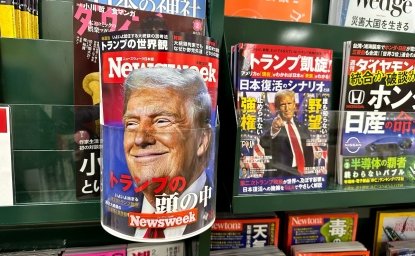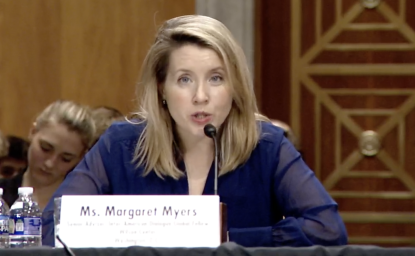A “Diplomatic Nuclear Explosion”? Sino-French Relations in the 1960s



CWIHP e-Dossier No. 53
A "Diplomatic Nuclear Explosion"? Sino-French Relations in the 1960s
Garret J. Martin
On 27 January 1964, France and the People’s Republic of China (PRC) officially established diplomatic relations. Not only did it constitute a real “diplomatic nuclear explosion,” according to Western media observers of the time,[1] but it also marked the first major Western recognition of the PRC since 1950.[2] The normalization with Communist China reflected a number of key objectives and perspectives of French President General Charles de Gaulle.
First, de Gaulle wanted to take advantage of the natural convergence between both countries; that is to say, their shared willingness to defy their more powerful allies and their shared opposition to superpower hegemony, in particular in the field of nuclear weapons. Second, by breaking solidarity with his Western allies—with the US first and foremost—and by acting unilaterally and secretly, de Gaulle was keen to highlight France’s credentials as a major power. Finally, beyond symbolism, the General hoped that a rapprochement and close cooperation with the PRC could help France to play a larger role in Southeast Asia, with the end goal of preserving peace in that region.
However, the high hopes entertained by de Gaulle for Sino-French relations never quite materialized during the rest of the 1960s, undermined by China and France’s conflicting goals toward the Vietnam War and the turmoil associated with the Cultural Revolution. The rise and fall of Sino-French relations is narrated in the riveting documents attached to this e-Dossier, including the secret negotiations in the fall 1963 (Document No. 2 and Document No. 3), to the establishment of diplomatic ties, and bilateral relations before and after the Cultural Revolution (for instance Document No. 7 and Document No. 19).
But this e-Dossier is far more than simply an account of Sino-French relations in the 1960s, and instead it presents a wider and more significant picture of the global Cold War. Indeed, the documents highlight how French diplomats assessed China’s foreign policy toward Western and Eastern Europe, both before and after the two countries established official relations (see Document No. 1, Document No. 12, and Document No. 24). The documents also delve into how French diplomats relied on their colleagues, both from the Western and the Eastern blocs, to gain a greater understanding of China and its international ambitions.
That includes not only the analysis of the British Foreign Office (see Document No. 13 and Document No. 16), but also the frustrations of Eastern European diplomats with their Chinese counterparts. As the Polish Ambassador to Japan M. Domagala pointed out eloquently in January 1968 (Document No. 11), “Westerners only tend to think of the difficulties they have in their own relations or in their relations with the socialist countries. They forget the problems that the Communist countries experience in their mutual relations.” Finally, the documents also track the fact that France’s decision to normalize relations with China led other Western countries, such as Canada and Italy, to follow in its footsteps (Document No. 15 and Document No. 25).
Altogether, this e-Dossier is an important collection because of the significant light that it sheds not only on Sino-French relations, but on the wider dynamics of Sino-European relations during the crucial period of the 1960s and early 1970s.
Garret J. Martin is a Term Faculty at the School of International Service at American University, and an editor at Large at the European Institute, based in Washington, DC. He obtained his PhD in International History at the London School of Economics. He has written a number of journal articles and chapters on France and the Cold War, and is the author of General de Gaulle’s Cold War: Challenging American Hegemony, 1963-68 (New York: Berghahn Books, 2013).
List of Documents
Document No. 1
Telegram number 638/45 from André Saint Mleux, 9 September 1963
[Source: Archives of the Ministry of Foreign Affairs, France. Obtained by Enrico Fardella and translated by Garret Martin.]
Document No. 2
Summary of Ideas Expressed by the Prime Minister Zhou Enlai, 2 November 1963
[Source: Documents diplomatiques Francais 1963. Tome 2, 1 Juillet - 31 Decembre (Paris: Imprimerie Nationale, 2001), 458-459. Translated by Garret Martin.]
Document No. 3
Report Sent to General de Gaulle, President of the French Republic, by Edgar Faure, on his Mission to China, 7 November 1963
[Source: Documents diplomatiques Francais 1963. Tome 2, 1 Juillet - 31 Decembre (Paris: Imprimerie Nationale, 2001), 469-478. Translated by Garret Martin.]
Document No. 4
Telegram 869/871 from André Saint Mleux, 29 November 1963
[Source: Archives of the Ministry of Foreign Affairs, France. Obtained by Enrico Fardella and translated by Garret Martin.]
Document No. 5
Telegram number 7125/28 from Maurice Dejean, 7 December 1963
[Source: Archives of the Ministry of Foreign Affairs, France. Obtained by Enrico Fardella and translated by Garret Martin.]
Document No. 6
Telegram number 47 from Pierre Gorce, 11 January 1964
[Source: Archives of the Ministry of Foreign Affairs, France. Obtained by Enrico Fardella and translated by Garret Martin.]
Document No. 7
Note number 150, 'Visit of M. Ho Ying', 5 March 1964
[Source: Archives of the Ministry of Foreign Affairs, France. Obtained by Enrico Fardella and translated by Garret Martin.]
Document No. 8
Telegram number 306/10 from Lucien Paye, 15 June 1964
[Source: Archives of the Ministry of Foreign Affairs, France. Obtained by Enrico Fardella and translated by Garret Martin.]
Document No. 9
Telegram number 1508-10 from Claude Chayet, 16 December 1964
[Source: Archives of the Ministry of Foreign Affairs, France. Obtained by Enrico Fardella and translated by Garret Martin.]
Document No. 10
Telegram number 3725-59 from M. Lucien Paye, 16 November 1966
[Source: Documents Diplomatiques Français, 1966 tome 2 (1Jun–31Dec) (Bruxelles: Peter Lang, 2006), 874-878. Translated by Garret Martin.]
Document No. 11
Note Number 48 from Louis de Guiringaud to His Excellency M. Couve de Murville, 'Relations between Communist Countries', 18 January 1968
[Source: Archives of the Ministry of Foreign Affairs, France. Obtained by Enrico Fardella and translated by Garret Martin.]
Document No. 12
Note Number 291 from the Department of Asia-Oceania, 'China and the Events in Czechoslovakia', 3 September 1968
[Source: Archives of the Ministry of Foreign Affairs, France. Obtained by Enrico Fardella and translated by Garret Martin.]
Document No. 13
Telegram Number 5186/92, 'Chinese Foreign Policy', 29 October 1968
[Source: Archives of the Ministry of Foreign Affairs, France. Obtained by Enrico Fardella and translated by Garret Martin.]
Document No. 14
Telegram Number 2206/09, 'NATO Ministerial Council', 20 November 1968
[Source: Archives of the Ministry of Foreign Affairs, France. Obtained by Enrico Fardella and translated by Garret Martin.]
Document No. 15
Note Gérard de la Villesbrunne to the Foreign Minister, 'New Interest of Western Diplomacy towards China: Hopes and Illusions', 30 January 1969
[Source: Archives of the Ministry of Foreign Affairs, France. Obtained by Enrico Fardella and translated by Garret Martin.]
Document No. 16
Telegram Number 1797/1800, 'Chinese Foreign Policy', 25 April 1969
[Source: Archives of the Ministry of Foreign Affairs, France. Obtained by Enrico Fardella and translated by Garret Martin.]
Document No. 17
Note Number 399 from Pierre Cerles to Michel Debré, 'China and Eastern Europe', 16 May 1969
[Source: Archives of the Ministry of Foreign Affairs, France. Obtained by Enrico Fardella and translated by Garret Martin.]
Document No. 18
Note Number 760 from Geoffroy Chodron de Courcel to Michel Debré, 'Chinese Foreign Policy', 12 June 1969
[Source: Archives of the Ministry of Foreign Affairs, France. Obtained by Enrico Fardella and translated by Garret Martin.]
Document No. 19
Ministry of Foreign Affairs, Note of Asia-Oceania Department, 'Sino-French Relations', 6 October 1969
[Source: Archives of the Ministry of Foreign Affairs, France. Obtained by Enrico Fardella and translated by Garret Martin.]
Document No. 20
Telegram Number 1930-33, 'China and the European Socialist Countries', 10 October 1969
[Source: Archives of the Ministry of Foreign Affairs, France. Obtained by Enrico Fardella and translated by Garret Martin.]
Document No. 21
Telegram Number 2142-08, 'Conversation with the Deputy-Minister of Foreign Affairs (Europe)', 28 October 1969
[Source: Archives of the Ministry of Foreign Affairs, France. Obtained by Enrico Fardella and translated by Garret Martin.]
Document No. 22
Note Number 969 from M. Jacques Roux to Maurice Schumann, 'Divided Countries: Germany and China', 5 November 1969
[Source: Archives of the Ministry of Foreign Affairs, France. Obtained by Enrico Fardella and translated by Garret Martin.]
Document No. 23
Telegram Number 2592/98, 'China and the German Problem', 24 December 1969
[Source: Archives of the Ministry of Foreign Affairs, France. Obtained by Enrico Fardella and translated by Garret Martin.]
Document No. 24
Telegram Number 4549/52, 'Sino-Hungarian Relations and the Indochina Problem', 3 November 1970
[Source: Archives of the Ministry of Foreign Affairs, France. Obtained by Enrico Fardella and translated by Garret Martin.]
Document No. 25
Ministry of Foreign Affairs, Department of Political Affairs, Asia-Oceania, Note, 'State of the Chinese Question after Canada and Italy’s Recognition of Beijing and After the UN Discussion', 30 December 1970
[Source: Archives of the Ministry of Foreign Affairs, France. Obtained by Enrico Fardella and translated by Garret Martin.]
Document No. 26
Foreign Minister, Department of Political Affairs, Asia-Oceania, Note, 'Polish Opinion about Chinese Policy', 27 May 1970
[Source: Archives of the Ministry of Foreign Affairs, France. Obtained by Enrico Fardella and translated by Garret Martin.]
[1] Zhang Xichang, “Souvenir de Zhang Xichang: Les négociations confidentielles et l'établissement des relations diplomatiques entre la Chine et la France,” 18 January 2004, http://french.peopledaily.com.cn/french/200401/18/fra20040118_64993.html (accessed 20 July 2014)
[2] John Fairbank and Roderick MacFarquhar, eds., The Cambridge History of China: Vol.14 (Cambridge, UK: Cambridge University Press, 1987), 532.
Author

Cold War International History Project
The Cold War International History Project supports the full and prompt release of historical materials by governments on all sides of the Cold War. Read more


History and Public Policy Program
A leader in making key foreign policy records accessible and fostering informed scholarship, analysis, and discussion on international affairs, past and present. Read more

Explore More
Browse Insights & Analysis
Myanmar’s Junta and the 2026 Elections: A Fig Leaf for Legitimacy?

Climate Change, Peace and Security: Discourse Versus Action in Asia

